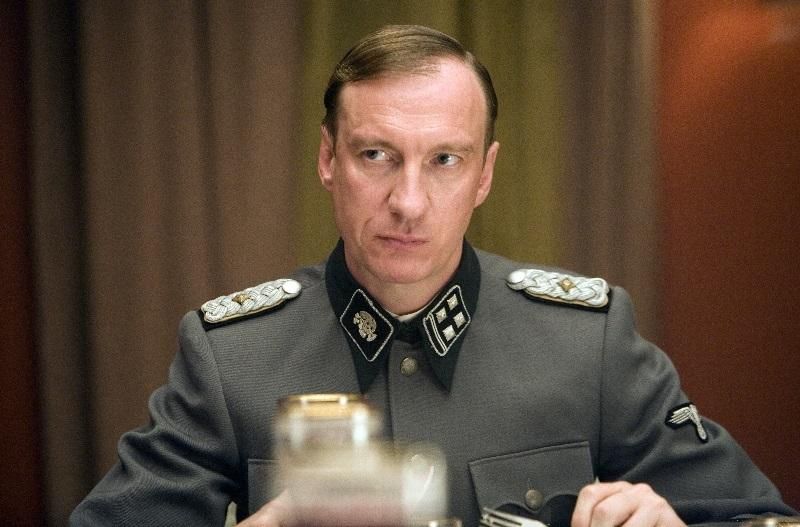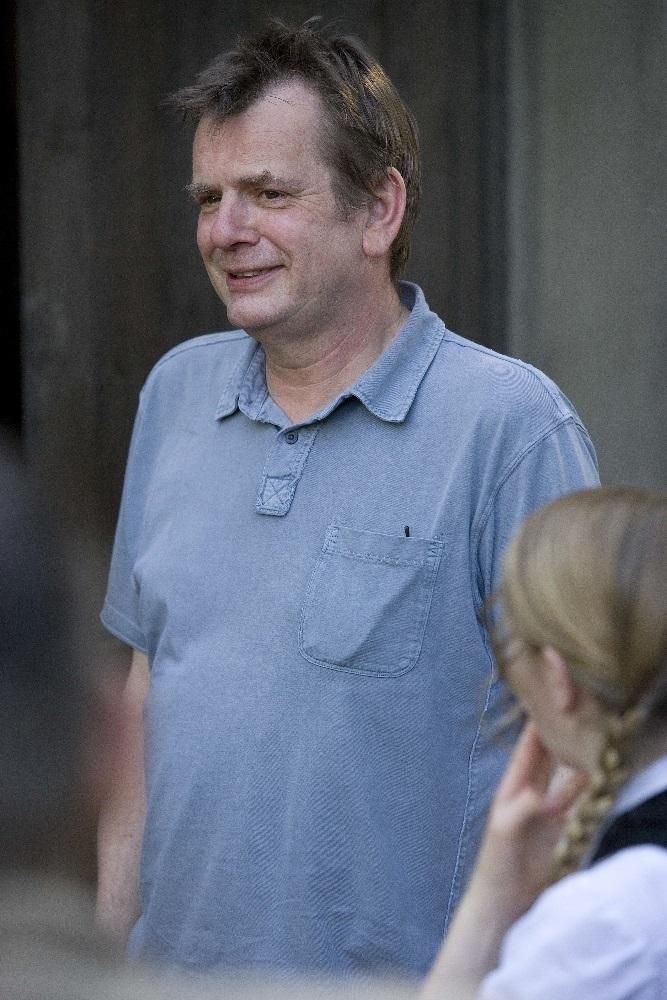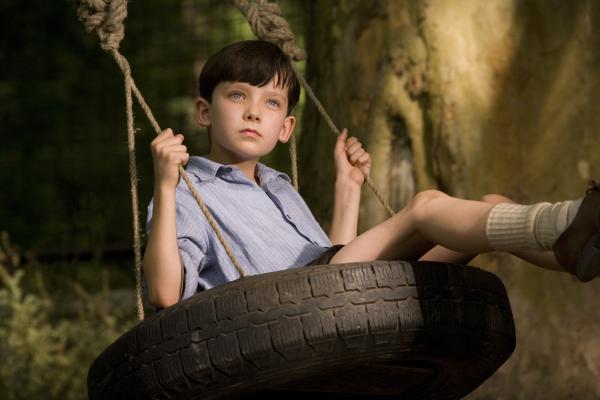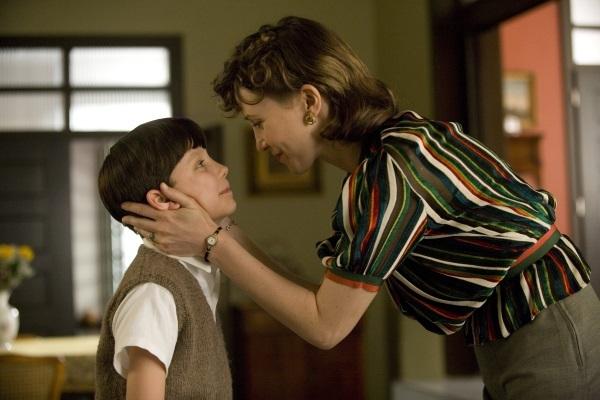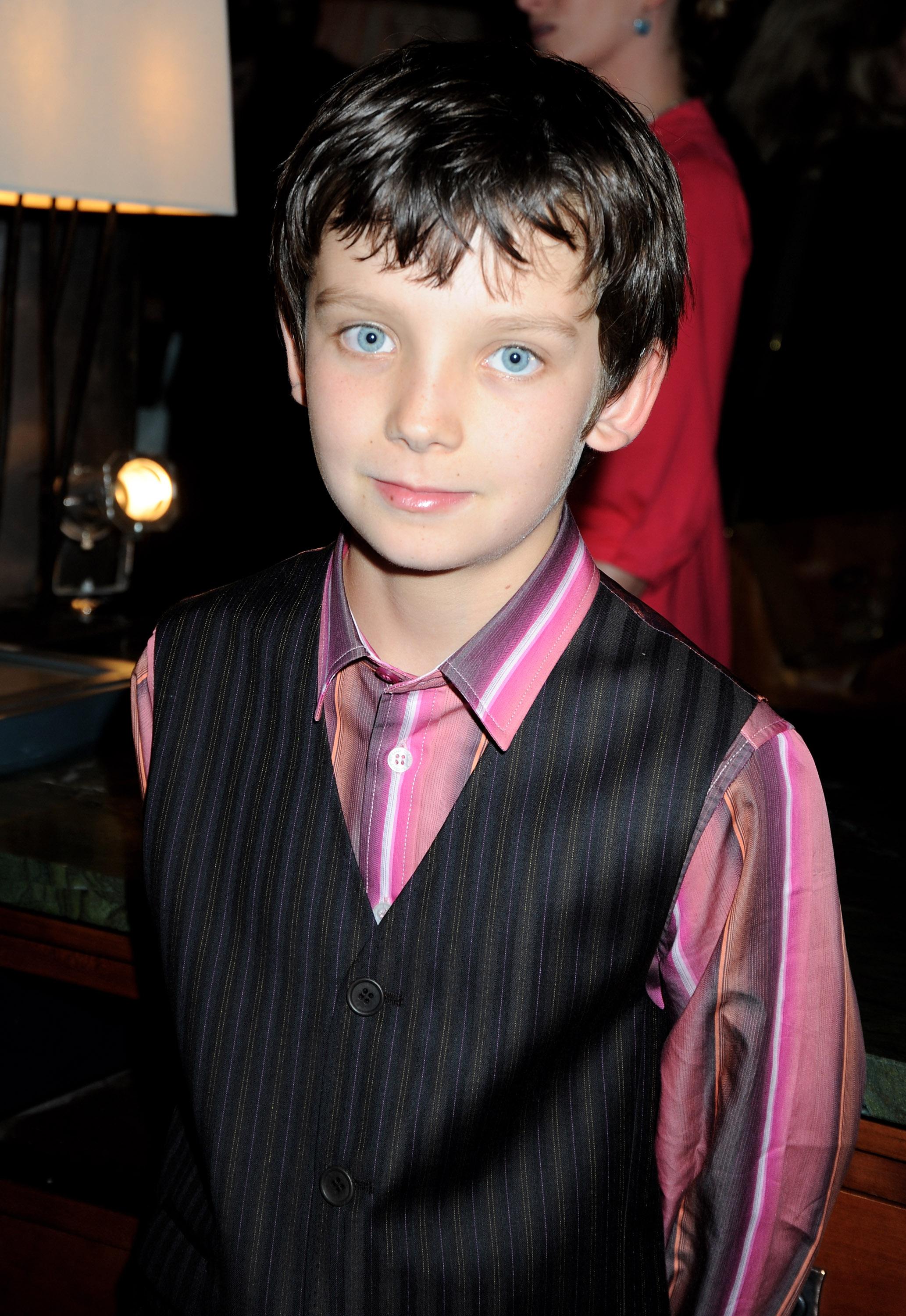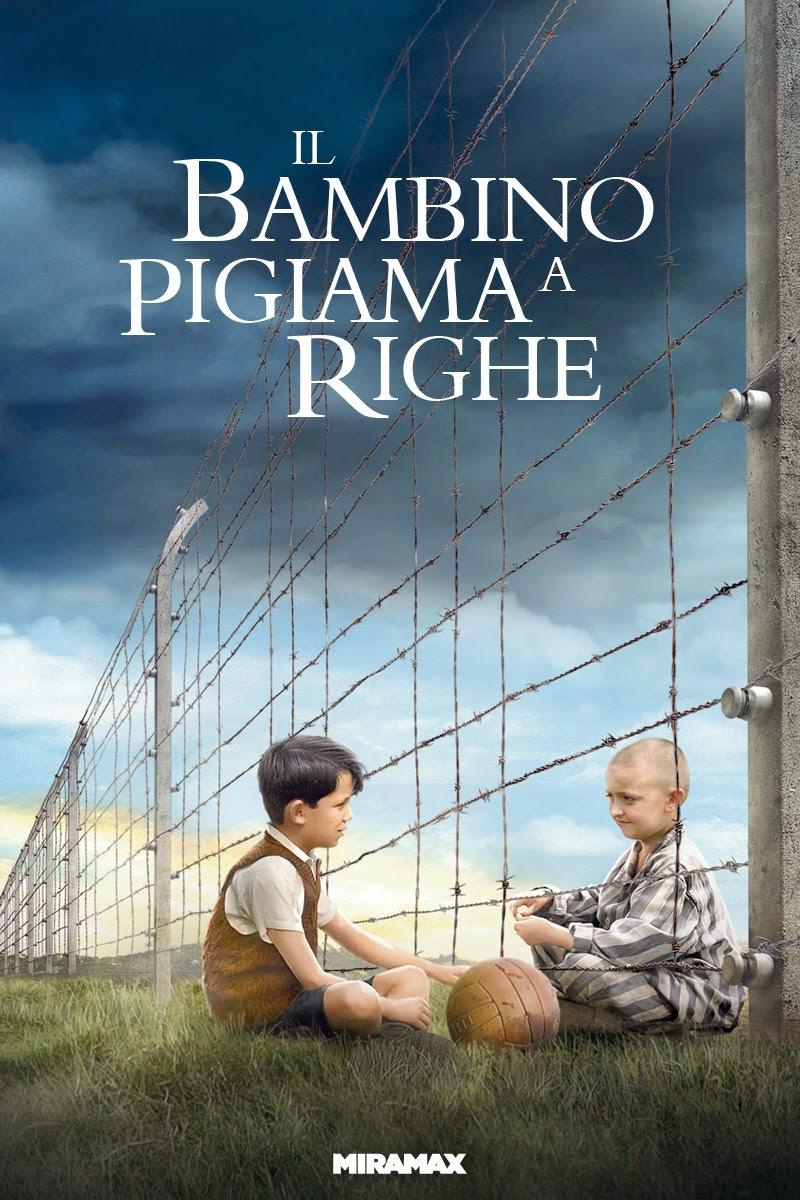Synopsis
In the hauntingly poignant film, we follow the journey of young Bruno, portrayed by Asa Butterfield. Bruno's life takes an unexpected turn when his father, a high-ranking Nazi officer, receives a promotion placing him in charge of a mysterious camp. Unaware of its true nature, Bruno is uprooted from his comfortable life in Berlin and relocated to Poland with his family. This new home brings with it strict rules, including the prohibition from exploring beyond their garden—rules Bruno finds stifling.
The family is thrust into a world steeped in ideology, evident through the presence of their tutor, whose rigid curriculum reinforces antisemitic beliefs. While his sister Gretel begins embracing these views, Bruno remains unconvinced, sensing a discord between what he is taught and the humanity displayed by those working around their home.
Bruno's curiosity leads him to defy the boundaries set by his parents, and he ventures out to the edge of the camp's electrified fence. Here, he encounters Shmuel, a kindred spirit on the other side, who shares his age yet lives an existence shaped by uncertainty. In innocence and a burgeoning friendship, Bruno and Shmuel often meet, their worlds juxtaposed but their bond growing stronger with each encounter. Bruno's understanding of Shmuel's reality deepens when he learns of his heritage, yet this revelation only strengthens their clandestine alliance.
Amidst these youthful discoveries, tension simmers under the family roof. Elsa, Bruno's mother, uncovers the grim truth behind the camp's infamous smoke stacks, leading to a confrontation with her husband, Ralf. This revelation, along with other strained relationships within their home, bears testament to the oppressive environment they inhabit.
As the story unfolds, the implications of living so close to such a harrowing place begin to unravel. Events spiral when Shmuel's father disappears in the camp, prompting Bruno to promise aid. The boys' friendship culminates in a covert plan to discover the truth. On the eve of his departure, Bruno ventures to the camp once more. Shmuel, determined not to face his journey alone, provides Bruno with a disguise—an action that ignites the cascade of events leading to a sobering climax.
As Bruno's absence becomes apparent, a frantic search ensues, yet time is unforgiving. The convergence of innocence and horror reaches its peak, unveiling a poignant commentary on the era's devastating truths. Through its emotional depth, navigates the dark complexities of human nature and innocence lost amid historical atrocities. This film's end, marked by a quiet, chilling scene, leaves an indelible mark, prompting reflection on the unthinkable toll of the Holocaust.
Argument
The canvas of historical cinema is often painted with somber hues, yet none more so than , a film that weaves a tragic narrative through the innocent eyes of a young boy named Bruno, portrayed eloquently by Asa Butterfield. As the story unfolds, Bruno is propelled into the turbulent and morally complex world of Nazi Germany, where his father, Ralf, a high-ranking Nazi officer, has received a promotion. This elevation sees the family's relocation from the vibrant city of Berlin to the starkly contrasting and eerie proximity of a concentration camp in present-day Poland. However, much to Bruno's ignorance, this menacing backdrop is both a place of work for his father and a harbinger of inscrutable truths.
The narrative thrusts forward, delineating Bruno's confinement within the boundaries of his garden, a restriction imposed by his parents to shield him from the horrors beyond their home's periphery. The omnipresent camp, visible from the garden, looms large, an ominous presence barely explained to Bruno. Meanwhile, the children – Bruno and his elder sister Gretel – endure an indoctrination at the hands of a personal tutor, a man fervently committed to instilling antisemitic ideologies in their impressionable minds. It is here we observe a dichotomy unfold. Gretel embraces these teachings, her beliefs aligning gradually with the regime's doctrines, painting her as a cautionary tale of youthful susceptibility. Conversely, Bruno's innate curiosity and benevolent nature resist such manipulation, leading him to question the disparities between the vilified image of Jews he is taught and the reality he begins to perceive.
Bruno's insatiable quest for truth manifests as he flouts his parents' restrictions, embarking on an exploration that veers uncomfortably close to the camp's barbed barriers. It is on this clandestine excursion that he encounters a boy of the same age, Shmuel, portrayed by Jack Scanlon, sequestered behind the fences. This friendship, forged in secrecy, sees no heed of the ideological chasms that separate them. Initially unaware of Shmuel's plight, Bruno visits his newfound friend habitually, smuggling food across the wire and sustaining a friendship that becomes a poignant defiance of the world surrounding them. As Bruno's visits continue, the grim reality of Shmuel's circumstances comes to light – he is a Jewish inmate, forcibly brought to the camp along with his family.
Amidst this clandestine kinship, tension mounts within the household. Lieutenant Kotler's revelation to Elsa regarding the true purpose of the camp's smokestacks precipitates a crisis of conscience. Elsa's confrontation with Ralf is emblematic, casting the camp's macabre practices into stark relief. A sinister spectacle unfolds when Kotler's brutality surfaces in the form of an assault on Pavel, a Jewish prisoner conscripted as domestic help. This incident reverberates through the household and is exacerbated when Shmuel, momentarily spirit away from the camp to assist, encounters Bruno once more. The latter, in a fleeting act of friendship, offers Shmuel sustenance, only for this to draw Kotler's ire when discovered. Bruno, in a fit of self-preservation, denies the act, leading to Shmuel's physical reprimand. Yet, profoundly, the friendship endures; Shmuel, upon their next encounter, forgives Bruno, a testament to the enduring, albeit bruised, strength of their bond.
The narrative's tragic crescendo is heralded by parallel developments within the camp and the household. Ralf's decision to relocate his family further from the camp's shadows coincides with an alarming revelation of Shmuel's father's disappearance within the camp – an ominous portent alluding to the systematic genocide occurring unseen. In a final act of solidarity, Bruno reckons with the depths of friendship, vowing to assist Shmuel in the search for his father. On the day of Bruno's scheduled departure, the adventurous yet fateful decision is made. Bruno adopts the camp's striped garb, a symbolic crossing of boundaries that encapsulates a naivety and innocence which starkly contrasts the camp’s harrowing reality. As the clandestine duo venture into the camp’s confines, the façade of ignorance begins to crumble before the encroaching truth of the camp’s dread purposes.
In a harrowing turn, Bruno's disappearance sets off a frantic search led by his desperate mother, Elsa. The discovery of his abandoned clothes near the fence precipitates a parental realization too ghastly to imagine. Within the camp, the inexorable machinery of death steers Bruno and Shmuel unwittingly toward a gas chamber, their hands clasped in innocuous unity. Here, in this chilling scene, the film delivers its most potent indictment of the Holocaust's barbarity. The sequence shifts to emotive chaos as Nazi soldiers unleash the lethal gas, a panic spreading like wildfire among the unsuspecting prisoners. Within moments, the audience witnesses the heart-rending tableau of Bruno and Shmuel, innocently clutching each other for comfort against horrors unfathomable. The culmination of these narratives—in the gas chamber's stark silence—evokes a profound commentary on the indiscriminately destructive juggernaut of hatred and prejudice that defined the Holocaust.
The film's haunting conclusion, accentuated by Ralf's anguished cries as comprehension dawns, stands as a meditation on loss and the perils of blind allegiance to abhorrent ideologies. As silence engulfs the chamber, accompanied by Elsa and Gretel's sobbing realization, the film sears its indelible message into the annals of cinema: the world must remember the Holocaust’s victims, reminding us of the collective responsibility to guard against the resurgence of such inhumanity.
Cast
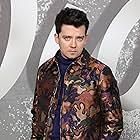
Asa Butterfield
Bruno

David Thewlis
Father

Rupert Friend
Lieutenant Kotler

Zac Mattoon O'Brien
Leon

Domonkos Németh
Martin

Henry Kingsmill
Karl
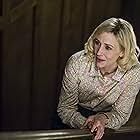
Vera Farmiga
Mother

Cara Horgan
Maria

Zsuzsa Holl
Berlin Cook

Amber Beattie
Gretel

László Áron
Lars
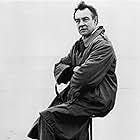
Richard Johnson
Grandpa

Sheila Hancock
Grandma

Charlie Baker
Palm Court Singer

Iván Verebély
Meinberg

Béla Fesztbaum
Schultz

Attila Egyed
Heinz

David Hayman
Pavel
Multimedia


